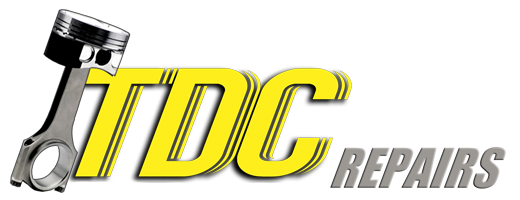Maintenance list to keep your car in great running condition
Check: battery, tires, brakes, fluid levels (washer fluid, oil, coolant, brake fluid, power steering, etc), fuel filters & injectors, belts and hoses, spark plugs, alternator, and the lubrication of wheel bearings, ball joints, etc. Always be sure to follow the maintenance schedule as listed in your car manual.
A TDC Auto Repair Technician will gladly help you understand this list and also help you maintain your vehicle.
How often should I change my oil?
It depends on how you drive. If your car always (or nearly always) gets warmed up, and you don’t drive it very hard and keep the revs down, the manufacturer’s recommendation is probably fine. If, however, you drive it hard, drive it at high revs, or alternatively, if you only drive it to and from the supermarket so that it doesn’t get up to temperature, then you may wish to change oil much more often, perhaps at 3000 mile intervals (given that most manufacturers are now specifying 7500 mile intervals.) If you don’t drive your car much at all (about 7500 miles a year), then you probably want to change oil every six months anyway. If you are storing a car during the winter, then change oil before storing it and change oil when you bring it out of storage.
How often should I give my car a Tune Up?
Most cars require regularly scheduled tune-ups yearly and require major maintenance at 60,000 miles.
Do I have to go to the Dealership for scheduled maintenance?
ABSOLUTELY NOT! Your new car warranty can be applied to any independent automotive shop. We often hear dealership horror stories where customers have to keep going back to the dealer time after time to complete a simple repair. Why waste time and money! At TDC auto repairs, we have qualified, trained technicians that listen to you and most importantly, GET THE JOB RIGHT THE FIRST TIME!
Do I really have to rotate my tires?
Yes. Whether your vehicle has front-, rear-, all- or four-wheel drive, your tires benefit from a periodic rotation because the weight and workload they carry is unevenly distributed among the four wheels. That makes them wear unevenly. How frequently tires should be rotated depends on the vehicle and the manufacturer’s recommended interval, which should be listed in the service section of the owner’s manual. A good rule of thumb is to rotate them at least as often as you change the oil, or more often if the oil-service interval is, say, 10,000 miles. For example, if you drive 12,000 to 15,000 miles per year, you should rotate the tires twice a year.
My check engine light is on. What should I do?
If your check engine light turns on, you most likely will not damage your vehicle if you continue to your destination. However, you should bring your car into TDC Repairs as soon as possible to make sure that nothing serious is wrong with your vehicle. This could be a simple problem, but left alone it may result in an expensive repair. Don’t ignore this warning.
How often should I change my wiper blades?
How often you should change your vehicle’s wiper blades depends on how much time your car spends indoors. If your car is kept mostly inside, then you should plan on changing your wiper blades once a year. However, if your vehicle is mostly outdoors, then it is important to change your wiper blades at least two times throughout the year. Properly maintained wiper blades guarantee clearer vision and safer driving.
I have a leak under my car. How can I tell what is leaking?
The coloring of the liquid identifies the type of liquid. Coolant Fluid is orange or green, Engine fluid is brown or black, Transmission Fluid is red or pink, Power Steering Fluid is light brown, Differential Fluid is brown. Depending on the leak it could mean trouble. Don’t wait until it’s too late! Schedule a service appointment as soon as possible.
How must extra fuel is burned when using air conditioning?
It is estimated that the use of air conditioning in a typical car reduces fuel economy by one to two miles per gallon. For larger cars, or when traveling in extreme heat, air conditioning cuts fuel economy up to four miles per gallon.
How often do I need to check the anti-freeze? When does it need to be changed?
Especially during summer, it is essential to check your vehicle’s anti-freeze once a month.
You should periodically change the radiator fluid in your vehicle to help your car’s cooling system function at its best. Over time, dirt and other contaminants can build up in the fluid, or it may become acidic. When this occurs, the radiator fluid is much less effective and should be changed.
Most car manufacturers recommend that you change the radiator fluid in your vehicle every 24,000 to 36,000 miles, or every 24 to 36 months. However, your personal driving habits will also determine the frequency of needed radiator fluid changes. If you drive your vehicle in extreme extremely hot temperatures often, you may want to consider changing the fluid once a year or every 12,000 to 15,000 miles.
What should you do if the engine temperature gauge begins rising during rush-hour traffic?
Don’t panic. Give the car a little gas to let it rid itself of some engine heat. Turn on the heater, which will draw heat from the engine. If the gauge is firmly in the danger zone, pull to the side of the road and let the motor cool. Most cars shouldn’t overheat–so have the cooling system checked. The problem could be anything from a clogged radiator core to low engine coolant to an inoperable radiator fan.


